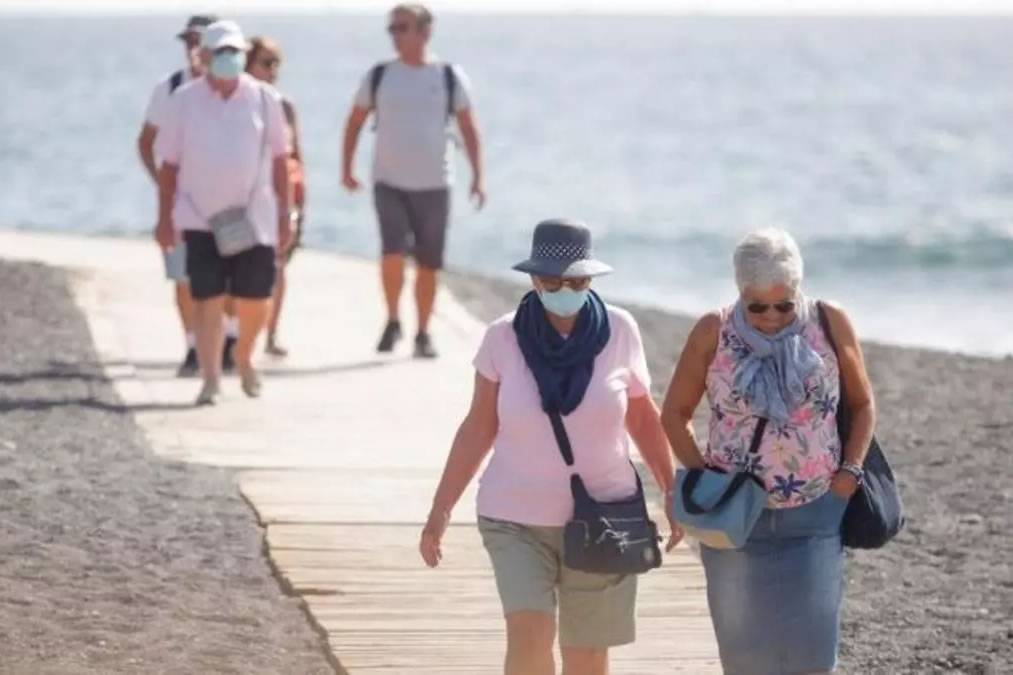Canary Islands brings back mandatory use of masks in healthcare centres from Tuesday
- 08-01-2024
- National
- Ministry of Health
- Photo Credit: Efe
As of tomorrow, Tuesday, the use of masks in all healthcare centres will be mandatory again in the Canary Islands. The Regional Government's Ministry of Health announced this decision this afternoon (Monday) to curb the influenza and coronavirus epidemics affecting the islands. The measure is being implemented on a temporary basis and will apply to peripheral clinics, health centres, medical centres, and both public and private hospitals throughout the Archipelago.
In a statement, the Ministry of Health explained that this decision is a response to the surge in acute respiratory infections across Spain, aiming to halt the chain of contagion. It also aims to protect healthcare workers and people visiting hospitals and health centres to prevent the spread of respiratory infections.
During a meeting held this morning between the regional health authorities and the Ministry of Health for Spain, the Canary Islands advocated for "consensus on a strategy to prevent respiratory infections, avoiding situations of healthcare stress in the upcoming flu seasons."
Flu Incidence:
According to the surveillance report on Acute Respiratory Infections (ARI) in the Canary Islands prepared by the Directorate General of Public Health of the SCS for the week of December 25th to 31st, the incidence rate of ARIs is 1,254.72 cases per 100,000 inhabitants. This data represents a slight decrease compared to the previous week, which recorded a rate of 1,296.78 cases per 100,000 inhabitants.
The age groups with the highest incidence in the last week are the population aged 0 to 4 years, with 4,408 cases per 100,000 inhabitants, individuals aged over 79 years with a rate of 1,435 cases per 100,000 inhabitants, and the population aged 5 to 14 years old, with a rate of 1,600 cases per 100,000 inhabitants.
Vaccination:
The Directorate General of Public Health emphasizes the importance of vaccination against influenza and COVID-19 as the "primary tool to prevent severe cases of these infections in the event of contagion." It also avoids the coexistence of both infections in a single person, minimizing the severity of the disease and stress on the healthcare system.
It insists that the vaccine is the most effective means to avoid contracting or transmitting the flu, especially in people at risk of complications and essential community personnel such as healthcare workers and caregivers for the elderly or dependent individuals.
Emergency Department Overload:
The situation in Canary Islands' emergency departments is so critical that hospital corridors are accommodating beds with patients. Measures have been taken, such as allowing nurses to prescribe paracetamol and ibuprofen, a historic demand from the healthcare collective.
Ruymán Pérez, the spokesperson for Health at Intersindical Canarias, describes a situation of "total collapse" in all emergency services, with moments of relief he considers "illusory." Pérez explains that emergency services currently have "more than a hundred pending admissions."
He further states that beds are being sought in hospitals through contingency plans in case the situation worsens, and they are "looking for spaces" in a precarious situation expected to worsen from January 15th onwards. For the union representative, this surge is one more in a series of crises in healthcare services for "over 20 years."
Meanwhile, the Ministry of Health and the regional health authorities, did not reach an agreement on the mandatory use of masks in nursing homes and pharmacies, even though last Thursday's data revealed a significant increase in flu contagions, rising by 75% in a week. The incidence rate went from 249.4 cases per 100,000 inhabitants to 348.3, according to data from the Carlos III Health Institute.
Preventive Measures:
The Ministry of Health of the Canary Islands Government proposes some measures to prevent contagion and spreading of infection:
- Use a mask when sharing space with others.
- Increase ventilation in rooms.
- Practice frequent hand hygiene, especially after blowing your nose or coughing.
- Cover your mouth and nose when sneezing or coughing with your arm or a tissue.
- Use disposable tissues, disposing of them after each use.
- Avoid close contact with vulnerable people.
- Do not share glasses, cutlery, towels, and other objects that may have come into contact with saliva or secretions.
Other articles that may interest you...
Trending
Most Read Articles
Featured Videos
TributoFest: Michael Buble promo 14.02.2026
- 30-01-2026
TEAs 2025 Highlights
- 17-11-2025



























































